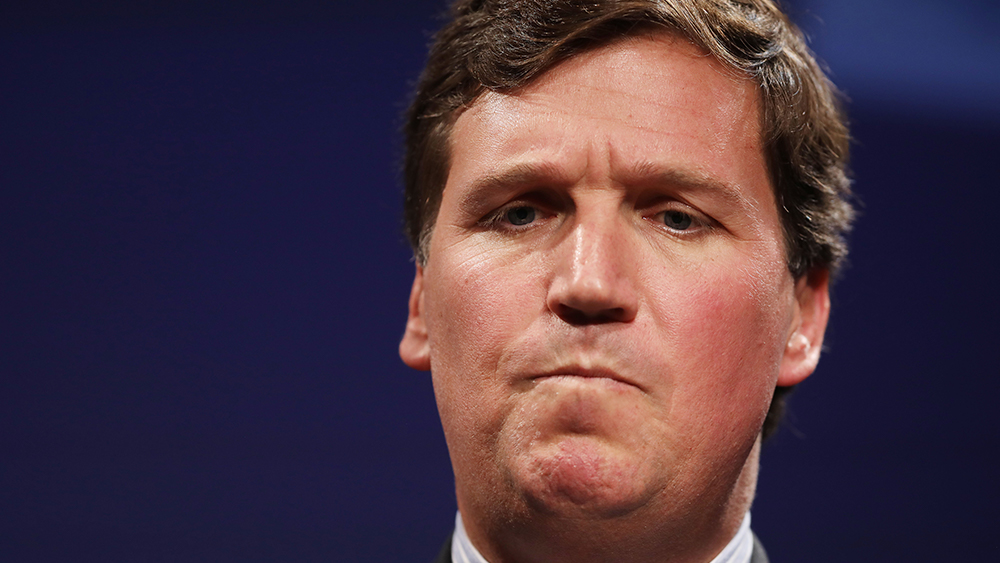
When Robinhood restricted the trading of certain stocks on its platform last week, it stated that it was to protect the firm and its customers. But a new report shows that it actually did so at the behest of a "shadowy" group of New York financial institutions.
According to a report by Blacklisted News, Robinhood halted the trading of stocks such as GameStop, AMC, Nokia and others only after the Depository Trust & Clearing Corporation (DTCC) pressured the company to do so.
Short-selling hedge funds threatened by small retail investors
Free-stock trading pioneer Robinhood became embroiled in controversy last week after it restricted trading for certain stocks that had been boosted by an influx of investments from small retail investors.
These investors, mostly coming from Reddit chat rooms, had latched on to these stocks after getting word that hedge funds were looking to short sell them. Short selling happens when stocks are borrowed by an entity that then sells the stocks with the expectation that their price will go down. Once this happens, the entity buys the stock back at a lower price and return them to the original owner, making a profit in the process.
One stock in particular, that of videogame retailer GameStop, had also attracted these small investors due to an investment by pet-food entrepreneur Ryan Cohen. This investment led these small investors to believe that the stock was undervalued.
News that hedge funds were looking to short sell GameStop stocks caused many retail investors in Reddit chat rooms to start buying stocks of the company, as well as those of the other reported targets of short-sellers, in order to raise the stock prices.
This was further bolstered by a tweet from Tesla CEO Elon Musk encouraging people to buy GameStop stocks. Tesla stock had been previously targeted by short-sellers in 2018.
The resulting short-squeeze led to many of the hedge funds shorting GameSpot stock taking heavy losses. One such hedge fund, Melvin Capital, lost 53 percent of its investments. This required the company to be bailed out by Citadel LLC and Point72 Asset Management, who are investing $2.75 billion into the company to help stabilize it.
DTCC raised deposit requirements to pressure Robinhood
In response to the short-squeeze, Robinhood initially restricted trading of the affected stocks on its app. The company stated that doing so was simply a measure to protect both its customers and the company.
But Robinhood CEO Vlad Tenev hinted that pressure to halt the trading of these stocks came from the clearinghouse level. While Tenev did not mention the DTCC by name, he was most likely referring to it as it serves as the sole clearinghouse for Robinhood.
"In a matter of days, our clearinghouse-mandated deposit requirements related to stocks increased ten-fold," Tenev wrote in an op-ed on USA Today. " These deposits are the collateral we post to ensure our access to clearinghouse services on behalf of our customers."
"They are what led us to put temporary buying restrictions in place on a small number of securities that the clearinghouses had raised their deposit requirements on."
That Robinhood restricted trading due to pressure from the DTCC shows how much influence the clearinghouse has over America's stock market and who gets rich from it. (Related: Criminal Wall Street oligarchs stifle populist trading movement that sent GameStop stocks soaring.)
"The brilliance of this excuse is that it only proves the skeptics and conspiracy-theory believers right," wrote financial analyst and author Omid Malekan. "DTCC is a for-profit monopoly that sits at the heart of America’s financial system."
"It is controlled by the biggest Wall Street institutions and responsible for all public equity settlement," he added.
Robinhood has allowed for the trading of affected stocks, such as GameStop's, though the number of shares people can buy is still limited. The value of GameStop's stock has fallen as much as 35 percent during Monday's trading. But this was only after short sellers lost over $19 billion on the stock.
Follow MarketCrash.news for more on the ongoing battle between hedge funds and retail investors.
Sources include:
Please contact us for more information.














